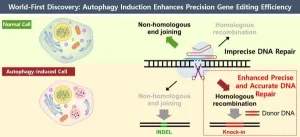Breakthrough in Thalassemia Research: Promising New Hope
Exciting advancements are emerging in the fight against Thalassemia, a genetic blood disorder affecting millions worldwide. Recent research published in JHep Reports offers a beacon of hope for improved treatment strategies and potential cures.
Understanding Thalassemia
Thalassemia is an inherited condition that impacts the production of hemoglobin, a protein in red blood cells responsible for carrying oxygen. This deficiency leads to anemia and various other health complications.
Key Findings from the Research
- The study highlights potential new therapeutic targets for Thalassemia.
- Researchers explored innovative approaches to enhance hemoglobin production.
- The findings contribute to a deeper understanding of the underlying mechanisms of the disease.
Potential Impact on Treatment
The insights gained from this research could pave the way for:
- Development of more effective drug therapies.
- Improved gene therapy strategies.
- Personalized treatment approaches based on individual patient profiles.
Global Implications
Thalassemia is a global health concern, particularly prevalent in regions such as South Asia, the Middle East, and the Mediterranean. This breakthrough research has the potential to significantly impact the lives of those affected by the disorder worldwide.
Final Overview
This research represents a significant step forward in our understanding and treatment of Thalassemia. While further investigation is needed, these findings offer renewed optimism for improved outcomes and a brighter future for individuals living with this challenging condition.




+ There are no comments
Add yours